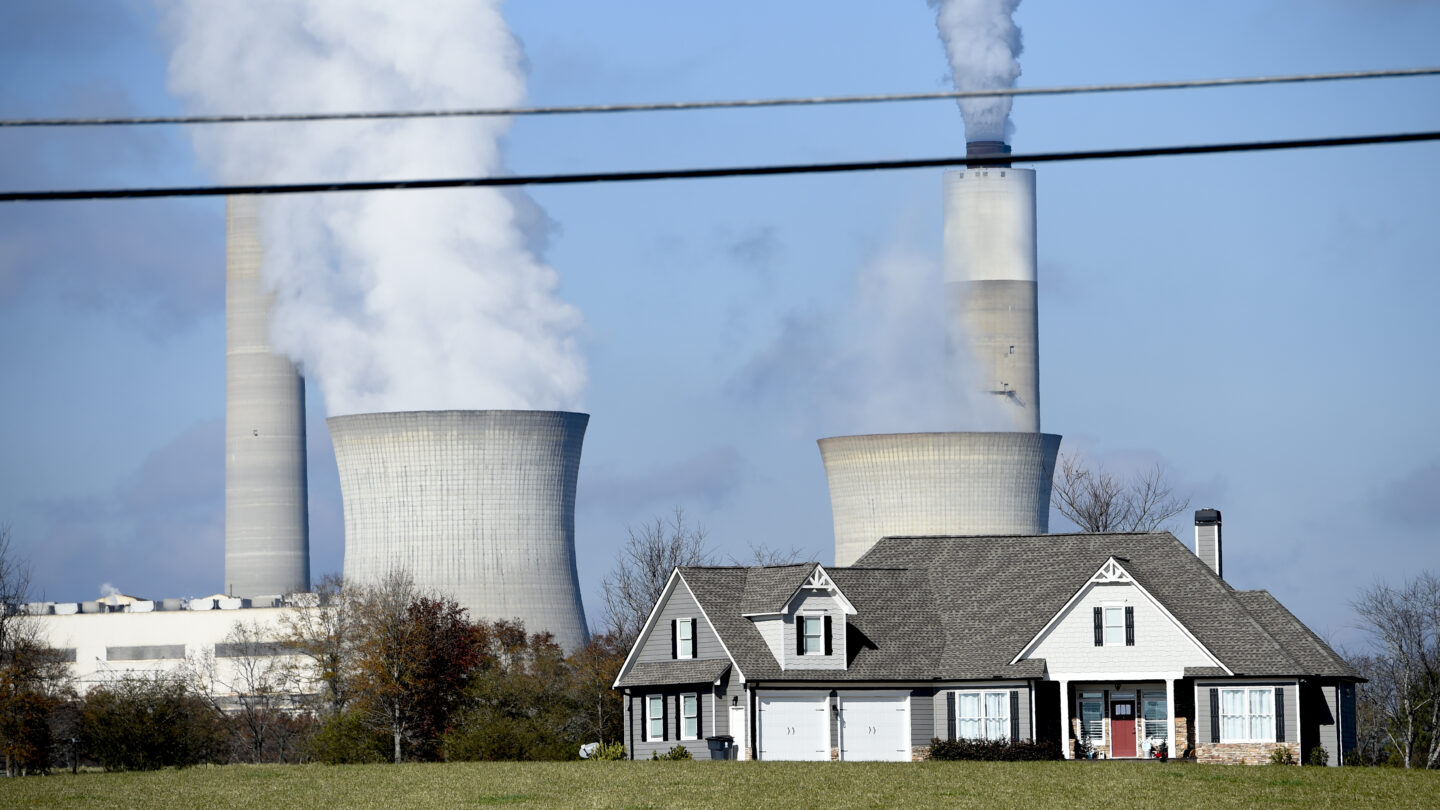This coverage is made possible through a partnership with WABE and Grist, a nonprofit, independent media organization dedicated to telling stories of climate solutions and a just future.
When the Supreme Court ruled Thursday to limit the federal Environmental Protection Agency’s power to regulate greenhouse gas emissions from coal plants, a battle over the future of coal in Georgia was already playing out.
The state’s largest electric utility wants to phase out its coal-fired power plants. But state regulators could put the brakes on that plan, prolonging their planet-warming emissions.
Georgia Power’s latest plan to generate and supply electricity calls for shutting down most coal units in the next five years, including two at North Georgia’s Plant Bowen, the most-polluting coal plant in the state according to a recent analysis.
The utility says it ran the numbers, and it no longer makes economic sense to keep the aging coal plants open.
State regulators, though, are not convinced. In a proposed agreement between Georgia Power and Georgia Public Service Commission staff, staffers said they did their own analysis and found closure of the Plant Bowen coal units is a “close call.”
The final decision is up to the elected commissioners. And recent headlines about high natural gas prices have some of them worried about abandoning coal.
“When you compare that cost of running a combined cycle [natural gas plant] today with a coal unit, does this not give you concern?” Commissioner Bubba McDonald asked at a recent hearing.
A representative for Georgia Power responded that natural gas prices should even out over time, and that coal prices can be volatile too.
The company’s plan is to close the two units at Plant Bowen by the end of 2027. But the commission could decide to keep them open for eight years beyond that.
Every one of those years would make climate change worse, according to Bryan Jacob of the Southern Alliance for Clean Energy (SACE).
“Every year earlier that you could retire those prevents that much more CO2 emitted that year,” he said.
In 2020, Plant Bowen emitted nearly eight million metric tons of greenhouse gasses, according to EPA data.
SACE partnered with environmental nonprofit Southface Institute to intervene in Georgia Power’s planning process, meaning they have presented testimony on the plan and had a representative question other witnesses. Currently, SACE and other intervenors are preparing their final briefs before the commission makes its decision.
Jacob said they will urge commissioners to allow Georgia Power to close the Plant Bowen coal units as planned.
“No one made a compelling case for keeping it open,” he said.
Georgia Power’s parent, Southern Company, has pledged to reach net zero emissions by 2050. A new report by SACE found that Southern Company is on track to reach that goal by 2071. That’s fifteen years earlier than last year’s outlook – but still far short of the company’s own target.
And while retiring coal plants helps reduce emissions, Georgia Power plans to replace much of the energy from those coal plants with natural gas – which still generates greenhouse gasses and contributes to climate change.
For that reason, SACE and other intervenors are calling on the commission to reconsider the six Power Purchase Agreements the utility is proposing, through which it would buy electricity generated by burning gas.
“It’s not necessary to approve all six of those,” said Jill Kysor of the Southern Environmental Law Center, which is intervening on behalf of Georgia Interfaith Power and Light and the Partnership for Southern Equity.
One of the PPAs doesn’t start until 2028, so these intervenors are urging the commission to hold off and consider it in the next planning cycle, in 2025. If the commissioners decide to keep the Plant Bowen coal units open longer, Jacob said, they should reject more of the gas PPAs. The utility simply won’t need all that extra power, he said.
Georgia Power officials have said in the hearings that the PPAs it proposed are good deals – and worth moving ahead with.
The Intergovernmental Panel on Climate Change has said for years that immediate, drastic reductions in greenhouse gas emissions are needed to prevent the worst impacts of climate change. The group’s most recent report detailed current threats to human lives and property thanks to warming that has already happened; those impacts will only get worse without action on emissions.
“We need to get out of coal for sure,” Jacob said. “And, logically, get out of gas.”
Georgia Power should instead replace power from coal with renewable energy like solar and wind, nuclear power and better energy efficiency, Jacob said.
In past rounds of planning, the commissioners have directed Georgia Power to add more renewable energy. The agreement between the utility and commission staff calls for the amount of renewables that the company initially proposed, about 2,300 megawatts. But just like with the coal unit closures, commissioners have discretion.
“Ultimately, it’s the commission’s decision where they want to land on any of these issues,” Kysor said.









